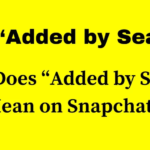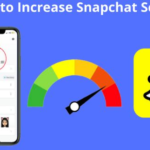
In the last decade, we, the web surfers, have enjoyed inventions and further development of amazing information systems and software. However, every technological advancement is fueled by specific resources. The foundation of information technologies is, well, the information itself. Every source of data contributes to the further evolution of the web. Exponential improvements in software and hardware are moving to an eventual plateau. Knowledge is the main driving factor that helps us achieve progress in the development of Artificial Intelligence (AI) and machine learning.
For modern tech companies, private user data and engagement with their services and social media platforms generates an endless mine of information that they develop the most addictive and desirable products and services. Realizing the necessity of data for these convenient services, businesses do everything in their power to extract as much of it as possible.
The centralized power in the hands of these businesses restructured the internet, where privacy is a thing of the past. Because tech companies stop at nothing to violate user anonymity, our every move gets monitored and registered, while our digital footprints remain forever.
Even if an average web surfer never bats an eye, the accumulation of personalized ads, third-party cookies, and algorithmic recommendations generate a sensation of being watched felt even by the most gullible internet users.
Because the extracted information comes from a few sources, ensuring complete anonymity becomes impossible. User-agents show what kind of browser and operating system (OS) you are using. IP addresses are our digital identity, which shows recipients the approximate location and internet service provider (ISP). Even if we manage to mask everything with privacy software, social media accounts and any correlation between previously transmitted personal information make complete privacy impossible.
Despite the somewhat powerless situation, we still recommend using internet privacy software to preserve important elements of privacy and enjoy a customizable browsing experience. In this article, our goal is to help beginners find the best proxies for beginner users unfamiliar with the service. We will discuss the functionality of intermediary servers and address the best Proxy service providers in the modern market. In the end, we will help you find the best proxies and test their functionality.
Why do you need Proxy Servers?
Have you ever felt uncomfortable about exposing your IP address? Maybe you have been a victim of DDoS or other cybersecurity attacks? Accessing the web through a proxy server will improve your internet privacy and security. Without proxies, your device establishes a connection with a recipient server and transmits information about you in an HTTP header, where lies your IP address.
With a proxy, we add a stop that assigns a different IP and the data attached to it, getting the main address out of the equation. Good proxy service providers help customers choose the location of the desired server, and if you choose an IP from a different region, the recommended search results, ads, and other localized segments may change to adapt to the new location.
Effects of Technology on Education
Main Proxy Server Types
When analyzing different proxy types, we observe unique features and applications. At first we have the most common and fastest type, the datacenter proxies. These addresses come from hosting providers that ensure secure connections and better internet speed for a low price. While suitable for most situations, because the IPs are bunched up in bulks, having one address banned puts other identities at risk of being banned on popular websites. While datacenter proxies are a cheap and effective option, their shortcomings in recognizability might make them obsolete in the distant future.
Residential proxies are obtained from IPs connected to devices that are serviced by ISPs. While it makes them slower and more costly than datacenter counterparts, shared addresses contribute to the chain of dynamic networks with massive IP pools. Residential proxies are mostly used by businesses that want to avoid detection and recognition for sensitive tasks at all costs.
ISP proxies are the hybrid of the last two types — a residential proxy hosted on a data center. They are faster than regular residential IPs and less recognizable than datacenter proxies, but the loss in dynamicity hinders the ability to utilize many addresses at the same time.
Mobile proxies are again similar to residential proxies, but with some exceptions. Association with mobile carriers enables sharing of an IP address with many people. While it may affect the stability of your connections, mobile proxies are the best at ensuring anonymity and the availability of new identities.
10 Roles For Artificial Intelligence In Education
Choosing a Proxy
For beginners, we recommend sticking to datacenter proxies until their recognizability becomes a liability. Proxyway — a respected guide to best proxies on the web, has a great list of best proxy providers, so make sure to analyze their offers. Once you have the desired service, you can test the functionality of your IPs with a free online proxy checker.
To avoid trouble, only use proxies provided by legitimate providers. While there are plenty of free proxy servers online, most of them are traps created by cybercriminals. Even if you manage to find and test a legitimate public proxy, you will have to share it with many other people at the same time, making your internet connection slow, insecure, and unpredictable.









